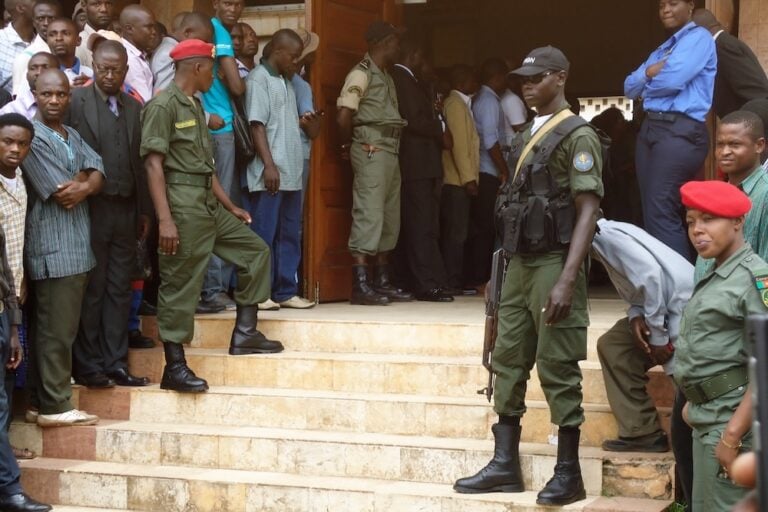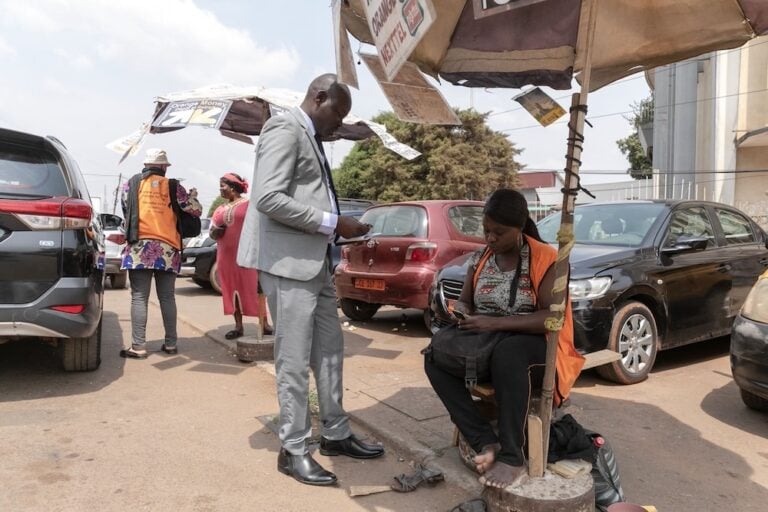(IFJ/IFEX) – The following is an IFJ media release: IFJ Calls for Release of Journalists and Reform of Libel Laws in Cameroon The International Federation of Journalists (IFJ) today demanded the release of four journalists imprisoned in Cameroun on libel charges. “We demand the immediate release of the detained journalists and the decriminalisation of libel […]
(IFJ/IFEX) – The following is an IFJ media release:
IFJ Calls for Release of Journalists and Reform of Libel Laws in Cameroon
The International Federation of Journalists (IFJ) today demanded the release of four journalists imprisoned in Cameroun on libel charges.
“We demand the immediate release of the detained journalists and the decriminalisation of libel laws in Cameroon,” said Gabriel Baglo, Director of the IFJ Africa Office.
The four Cameroonian journalists have been in prison since last September following allegations of “critical reports” against President Paul Biya and the Cameroonian authorities.
Lewis Medjo was charged with “dissemination of false news” following an article that was critical of the Head of State and the Chief of the Cameroonian Police Force. He was arrested in September 2008 and detained before being sentenced on 7 January to three years in jail and a fine of two million FCFA (more than 3 050 euros) by a court in Douala, the economic capital.
The three other journalists, namely Michel Mombio, Armand Ondoa and Zacharie Ndiomo, respectively editors of the bi-monthly magazine, L’Ouest républicain, the weekly magazine Régional and the weekly magazine Zenith, have been imprisoned without trial in Yaoundé.
Mombio was arrested on 4 September and accused of “attempted robbery, insulting a government official and blackmail”. Ondoa was detained on 15 October and Ndiomo the following day. They were accused of “attempted blackmail” and “attacking the honour of a high ranking official.”
The IFJ urges President Paul Biya to order the release of the journalists and to decriminalise libel laws in Cameroun in order to ensure press freedom and smoothen the relationship with the media, in a country where disputes can further strain the social climate.
The IFJ represents over 600,000 journalists in 123 countries worldwide.
For further information on the Medjo case, see: http://ifex.org/en/content/view/full/99757


